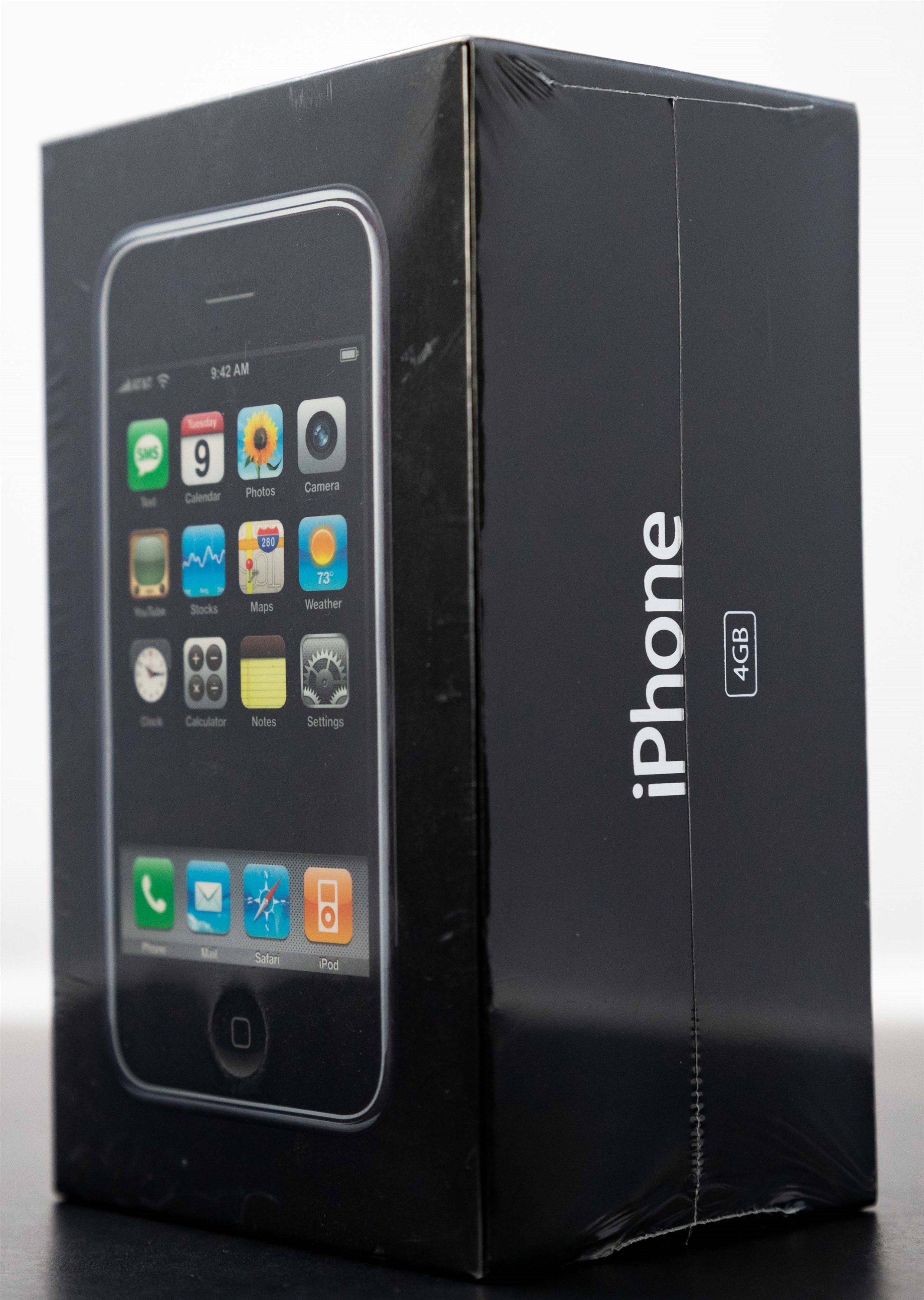In today’s technical era, there is a wide variety of brands to choose products from. But there is always demand for Apple products. These have always been popular among technology enthusiasts. Recently, in an auction organised by LCG Auctions, a US-based auction house, a first-generation iPhone was sold for $190,372.80 on July 16, 2023. Though it seems interesting, the question is- why do people pay so much for items in the auction? Let’s reveal the secret here.

Image credits: Freepik
iPhone 2007: The Beginning
The first-generation Apple iPhone was launched by Steve Jobs in 2007 with the promise to ‘reinvent the phone’. Back then, the original price of this 4GB model was $599. Apple continued to improve its technology and started manufacturing other highly efficient products. The company launched iPhone’s 8GB model after the original one. Buyers chose to buy the new model by paying little extra money. Due to this, the production sales of the 4GB variant went down and the company decided to discontinue the manufacturing of first-generation iPhones.

Image Credits: LCG Auctions
The incredible auction
LCG Auctions host an auction for the original iPhones as they have been in high demand in recent years. “They’ve been kind of a high-end collectible for a while now, but about a year ago, they started really kind of setting record prices,” said Mark Montero, the founder of LCG Auctions.
The auction house sold the first released 8GB model for $39,340 in October 2022 and the second 8GB model for $63,356 in February 2023. After the February auction, the company got a call from California. A member of Apple’s engineering team had the first-generation 4GB iPhone model which was unpacked and not used, and wanted to sell it in the auction. The auction company got excited as they had always seen and sold the 8GB version of the original iPhone.
“There were collectors on the sideline kind of looking for something different and unique, and now here’s something unique in that it was a 4GB,” said Montero.
The company scheduled the bidding period from June 30, 2023, to July 16, 2023. The auction began at a bid of $10,000 and was expected to reach between $50,000 and $100,000. On the final day of bidding, the bids were around $60,000. There were overall 28 bids in the auction with $158,644 being the second highest. Including commissions and administrative costs, the original 4GB iPhone was sold for $190,372.80, which was 300 times the original price of the phone in 2007.
“That morning, we’d just broken the previous record of $63,000 by like a little bit and it went from that to $190,000 which we certainly did not expect. That was almost double the high estimate,” stated Montero.

Image Credits: LCG Auctions
Why do we pay so much at auctions?
Auctions are an attractive and exciting place that allows people to buy unique items. It has become a trend where collectors purchase iconic items from the past, such as the original 4GB iPhone. As these items are rare and not easily available, buyers end up paying more than they should. But why does this happen?
Every bidder is familiar with the tension of the auction. To get the desired item and defeat other buyers, the person puts higher bids for that item. Several psychological elements are responsible for this action. These are listed below:
- Auction fever: Bidders go through different kinds of emotions during the auction. Due to this, they deviate from their strategy and over-bid their pre-determined limits. For instance, you set a budget of $10,000 for memorabilia before the auction. But as the bidding exceeds this limit and you were committed to buying that, you paid more than your budget.
- Endowment effect: Psuedo-endowment, also known as pre-factual feelings of possession, refers to the sense of ownership or feeling of attachment to an item. It increases the buyer’s desire to buy an item and win the auction at any cost. Instead of buying them, people overvalue things. For example, a person pretending to be the real owner and feeling an emotional attachment towards a car ends up buying it at higher prices.
- Social facilitation: It is a phenomenon where a person acts differently in the presence of others. In an auction, this leads to physiological arousal that allows bidders to make quick decisions. Social facilitation is caused by competitive instincts between the bidders. For example, a bidder will be ready to pay for rare items such as artwork to beat his rival bidders.

Image Credits: Pexels
But what triggers these psychological elements? Several factors come into play and change buyers’ emotions, allowing them to take quick action during an auction. These are listed below:
- Competition: One of the main factors that is responsible for a changed mindset. In this competitive world, everyone loves to win. Nobody likes to lose. During an auction, a competitive environment is created because of potential buyers. Due to this, bidders feel competition among themselves, and prices go up.
- Buyer’s perception: Buyers have their own perception of the items they are bidding for. At the auction house, multiple bidders look at the item with different perceived values. As the number of buyers increases, the item’s value also increases. Because of this, the bidding ends up at higher prices.
- Time constraint: Every auction includes a deadline for every item. Buyers have to bid in that particular period to buy the items. Due to the time constraint, the bidders feel pressurised and make high bids so they do not miss the opportunity of buying that particular item.
- Fear of losing a precious item: Some buyers do an investigation about the item before bidding on it. If they like it, they make up their minds to buy it at any cost. During an auction, they may fear losing and not getting another chance to buy that item. This fear drives them to increase their bidding value.
All the above factors lead to high prices of rare products. Because of this, every bidder pays more at auction than buying them from the store. However, controlling these factors and psychological emotions can help buyers to participate less in auctions and spend more money on collectables.


